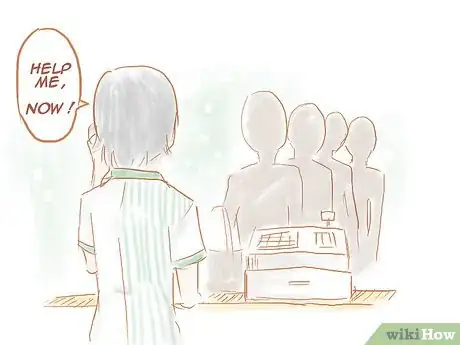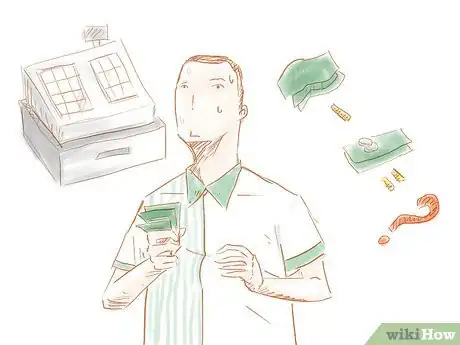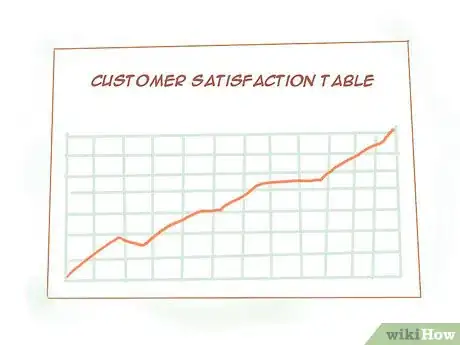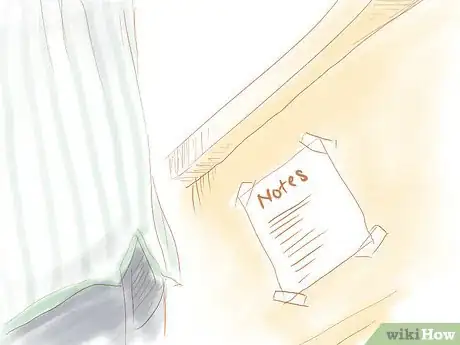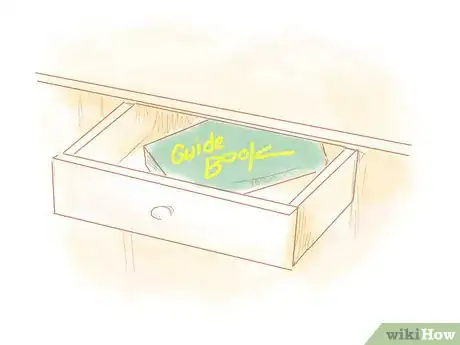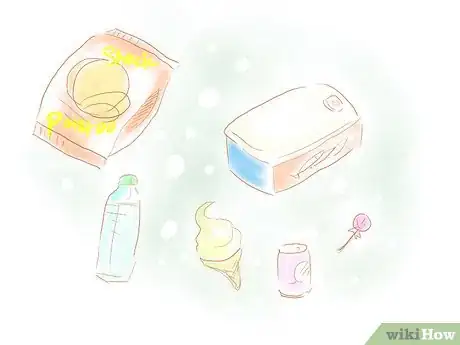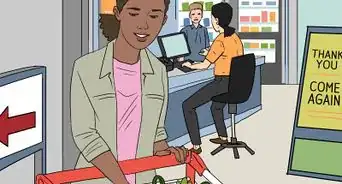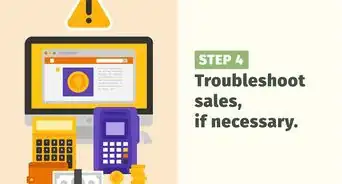This article was co-authored by wikiHow Staff. Our trained team of editors and researchers validate articles for accuracy and comprehensiveness. wikiHow's Content Management Team carefully monitors the work from our editorial staff to ensure that each article is backed by trusted research and meets our high quality standards.
wikiHow marks an article as reader-approved once it receives enough positive feedback. This article received 22 testimonials and 96% of readers who voted found it helpful, earning it our reader-approved status.
This article has been viewed 648,288 times.
Learn more...
So you've got a job (maybe your first job) in retail, and you've been asked to work the cash register. You'll probably be given basic training, but how do you get from day one on the job to become the pro cashier who can clear a long lineup in minutes and make everyone's day brighter? These are tips for getting better at your new job!
Steps
Good Service
-
1Smile and be nice. If you've had a bad day, leave it at home and be polite while on shift, even to the meanest customers. You don't need to be a pushover, but you're more likely to leave your customer happy and satisfied if you're slower but in a great mood than if you're the fastest cashier ever but snappy and rude. If you can't sincerely be cheerful, at least try to fake it.
-
2Ask the customer if "they are having a good day". Actually listen to their response and acknowledge their response. When they are walking out of the store, they will feel properly acknowledged and will likely come back to your store.Advertisement
-
3Call for backup. If your store has a protocol to call for backup when the line gets too long, call for backup and try not to rush through the entire line yourself.
-
4Stop talking to coworkers when service is required. Customers feel uncomfortable at best and disrespected if cashiers keep chatting around or over them while being served. This is your job, and just as other people don't chat away at work constantly, neither should you. Learn to drop and pick up conversations when it is appropriate.
Good Cash Handling
-
1Get to know the basics of your cash system. Whether it's an old manual cash register or a state-of-the-art computer system, you should know how to do all the basic things that will come up at least once every three or four customers. If your cash register has quick buttons for some cash amounts, like $5, $10, or $20, get in the habit of using them. For the first few days, review your basics constantly while it's not busy, and ask a more experienced cashier to double check you to make sure you're doing everything exactly right.
-
2Count back change. When there is not a long line, get into the habit of counting back the change to the customer instead of just handing them a bunch of bills. This cuts down on mistakes.
- Good practice in small retail businesses includes calling out large notes so that your coworker hears it. If there is a dispute and a customer claims to have given you more money than they did, you can use this standard practice to show that this is unlikely.
-
3Keep note of how the customer will be paying. Someone paying in cash has to search for change, while someone paying with debit needs to type their pin and wait for the transaction to go through. This is a great time to do something else they'll need done, like bagging their purchases.
Being Informed about Store Protocols
-
1Learn how to do things that come up reasonably often, but not every day. For example, if you only sell a gift certificate once every week or two, it's still a good idea to know the routine by heart. It's also a good idea to know what to do if you make a mistake or a small problem comes up - what's the routine if you give the wrong change but have already closed your cash, if someone wants a refund, or if your debit machine goes on the fritz? If this wasn't part of basic training, ask your manager or a more experienced cashier.
-
2Know where to go for more info if something more rare comes up. You probably can't memorize every routine in the book, especially the ones that might never come up while you work there, but you need to know where your guidebook or user manual is if those once-in-a-blue-moon occasions come up. It's a good idea to at least skim the full guidebook, so you'll know roughly what's in it and where to go if, say, the power goes out and you have to use that dusty manual debit card press in the back.
-
3Know the store's products well enough to make suggestions and compliments. Even if you're only a cashier and never expected to work the floor, you're still an employee and might be asked questions. If you happen to know something is a particularly good purchase, let the buyer know that they just got the first of a brand new product, or that you think that one's the nicest in the store and they made a great choice. Be sincere about this and don't overdo it, but a little compliment can create the perception of added value and make a customer even happier with their purchase.
Community Q&A
-
QuestionHow can I stop being so nervous while starting out on the register?
 Community AnswerBeing nervous is perfectly fine, and most people will understand. Everyone makes mistakes, including experienced cashiers. Go at whatever pace you feel comfortable with, even if it is slow; you will eventually get faster. If you try to overachieve and make everything perfect, you may end up stressing yourself out.
Community AnswerBeing nervous is perfectly fine, and most people will understand. Everyone makes mistakes, including experienced cashiers. Go at whatever pace you feel comfortable with, even if it is slow; you will eventually get faster. If you try to overachieve and make everything perfect, you may end up stressing yourself out. -
QuestionAre there any tips for dealing with rude customers?
 Community AnswerStay calm and explain to the customer what the store policies are; never raise your voice or get angry. If the customer continues to give your trouble, ask a manager to help you with the situation. As soon as the customer leaves, take a deep breath, and try to clear them from your mind.
Community AnswerStay calm and explain to the customer what the store policies are; never raise your voice or get angry. If the customer continues to give your trouble, ask a manager to help you with the situation. As soon as the customer leaves, take a deep breath, and try to clear them from your mind. -
QuestionMy mind always goes blank when they hand me money. I seem to forget basic math skills for some reason.
 Community AnswerTry practicing on cashier/cash counting games (the ones "for kids"). They are really helpful for pounding those basic numbers into your brain for those panic moments, spend a few hours on these games and it'll be easier to trust yourself in those panic moments when your mind goes blank.
Community AnswerTry practicing on cashier/cash counting games (the ones "for kids"). They are really helpful for pounding those basic numbers into your brain for those panic moments, spend a few hours on these games and it'll be easier to trust yourself in those panic moments when your mind goes blank.
About This Article
To be a good cashier, try to always be polite to your customers, and make sure you understand how your cash system works so you can cash people out quickly and efficiently. Smile and make eye contact with your customers so you seem friendly and happy to see them. Ask them if they’re having a good day, and actually acknowledge their response. You should also learn how to do all of the basics with your cash system, like using the $20 button or making a card payment. After a customer pays, count back the change to make sure you get it right. Once you’re settled into the job, learn how to do things that come up less often, like selling a gift card or what to do if you give the wrong change. For tips on when you should call for backup from a senior staff member, keep reading!


